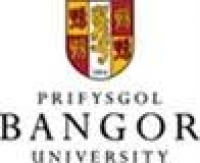The Sport Science aspect of this course includes the study of how physical and mental performance can be improved to help individuals to achieve their personal potential. Not only will this prepare you for a career as a sports scientist working with squads of elite performers to fine-tune their training but it will give you the background needed for a career in sports science research.
The Spanish aspect of the course will give you advanced skills in the Spanish language, and a broad range of specialised and detailed insights into the culture, society and history that go with it. The Spanish course has language at the heart of it, with core modules developing the key oral, aural and written skills every year. These modules also foster cultural awareness, which you will need for your year abroad, and later on, for the world of work.
The Sport Science aspect of the course is ideal preparation for careers in sport science, research, fitness/leisure management, sports administration, coaching and instruction, sports development, sports therapy/physiotherapy, teaching, the armed or emergency services, sports journalism, youth work and management consultancy. All courses in the School of Sport, Health and Exercise Sciences will prepare you for a career as a sport scientist, working with squads of elite athletes and performers to fine tune their training; sport science research; working in the public health sector, for example in sports therapy or physiotherapy; or working in the health/fitness industry generally. Postgraduate study and a career in teaching (after completing a postgraduate certificate of education), research and lecturing is another vocational route. There are also some specific career opportunities for different degrees listed with the course details.
Studying Modern Languages opens the door to a wide variety of careers. Many Bangor Modern Languages graduates have, of course, gone into teaching and translating, but just as many have embarked upon successful careers in the civil service, business and commerce, industry and the media. The skills you learn whilst studying languages - cultural awareness, communication, accuracy, planning and logical analysis - are valued highly by employers from all sectors of the economy.


